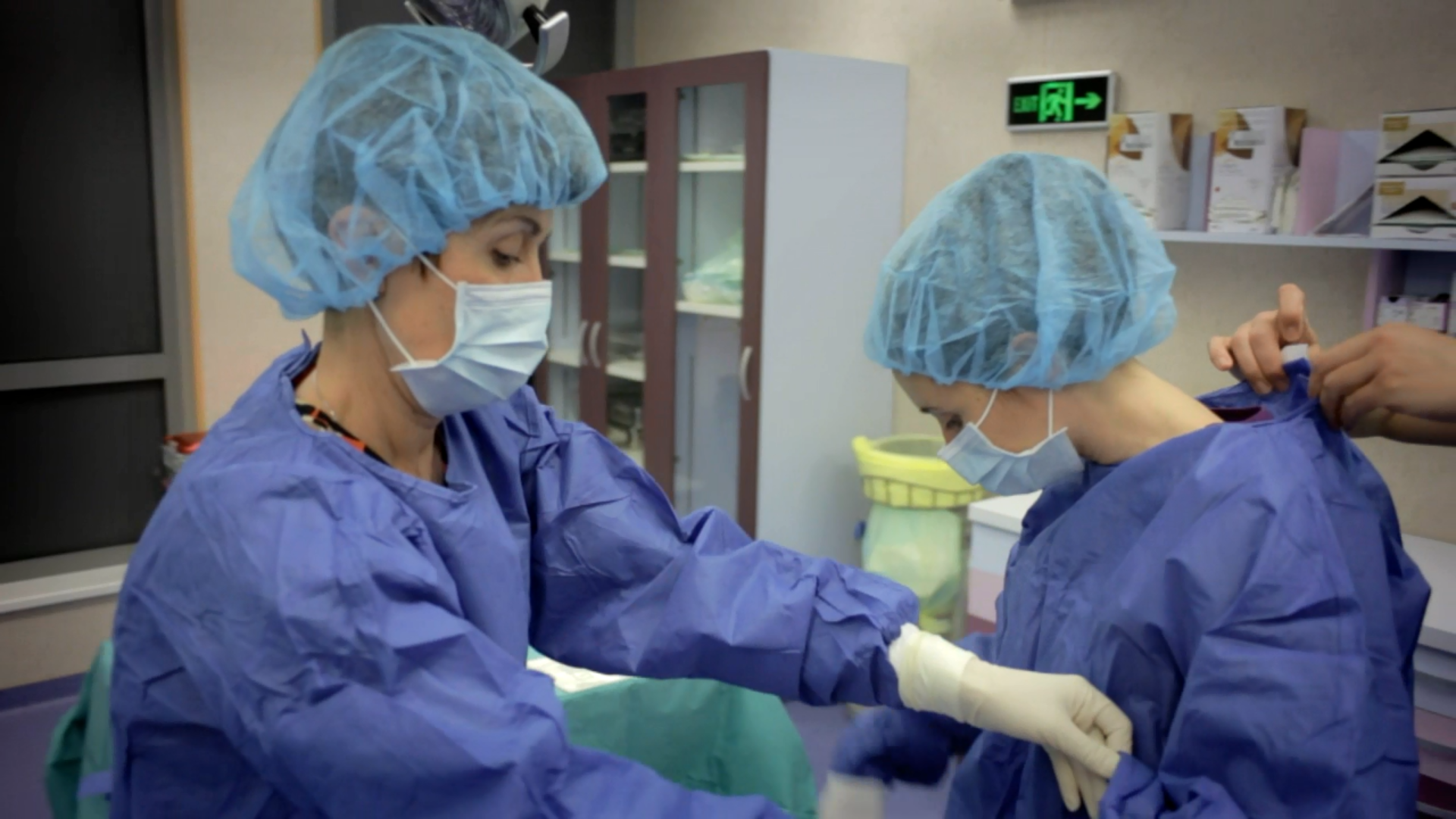Pelvic floor dysfunction / Incontinence correction for women
What is Pelvic floor dysfunction / Incontinence correction for women?
This surgery is not life-saving, but significantly improves the quality of life of the patients. The type of procedure depends on the condition of the woman. The surgery is usually performed through the vagina, but sometimes it’s combined with abdominal access, depending on the individual case. The choice of treatment depends on the patient’s age, general condition, concomitant diseases, a necessity of preserving reproductive and sexual functions.
When is it applied?
We perform the surgery in cases of vaginal vault prolapse (sometimes leading to uterine prolapse), and incontinence. The symptoms for pelvic floor dysfunction include visual defects, pressure, vaginal discomfort, voiding dysfunction - urinary urgency, difficulty emptying the bladder, pain during voiding, slow or weak urine stream, stress incontinence, repeated urinary infections. Gastrointestinal symptoms are also possible, like constipation, because of mechanical obstruction, impaired or blunted rectal sensation. The vaginal vault prolapse may lead to pain during sexual intercourse.
How do we perform pelvic floor dysfunction / Incontinence correction for women?
The surgery is performed under full anesthesia, and usually is through the vagina but in some cases of incontinence is necessary a minimum invasion through the abdominal wall. In such case, the operators make two or three small cuttings (1 cm) or one longer (5-6 cm) in the lowest part of the abdomen, according to the individual needing. The procedure is approximately an hour long. To ease the function of the uterine system, a catheter is inserted the bladder in the first five to six days after the surgery. Sometimes the usage of surgical drains is needed for the secretion from the cuts. The drains are painlessly removed in one to three days after the procedure.
What is the minimum hospital stay?
Six to eight days
What is the recovery period?
A month after the surgery the patient should avoid any physical exercise and sexual intercourses. Three months after the procedure the woman can continue with her normal life before the surgery.
Schedule your gynecological prevention now
Call +359 2 920 0901 and book your medical appointment for gynecological prevention or with a reproductive specialist. Use the other ways to contact Dr. Shterev Hospital - our online booking form, the Viber channel or Facebook Messenger. Follow the instructions and meet your trusted medical specialist.
 Медицински комплекс „Д-р Щерев”
Медицински комплекс „Д-р Щерев” 